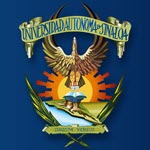Below is a summary of the abstract you submitted. Presenting author(s) is shown in bold.
If any changes need to be made, you can modify the abstract or change the authors.
You can also download a .docx version of this abstract.
If there are any problems, please email Dan at dar78@pitt.edu and he'll take care of them!
This abstract was last modified on May 31, 2024 at 4:25 p.m..

Antibiotic resistance is a major problem in actuality. The emergence of groups of bacteria that can evade all treatments is alarming, even more so if we consider that most of the infection by bacteria is caused in hospital environments, making the prospect of treatment for the health. Bacteriophages are one of the most promising treatments for the infection of MDR bacteria, due to their high specificity to their host and the ability to infect MDR bacteria. This study has as its purpose to isolate different bacteriophages from the environment that can infect the ESKAPE group, evaluate their morphology, and analyze if they can generate a cross-infection. As a result, we obtained 13 plates with lytic spots on the agar plate. We also found that the samples contained bacteriophages that have activity against Klebsiella, Escherichia, and Shigella, bacteria of the ESKAPE group. Further purification and studies must be done to analyze all the phages obtained.
